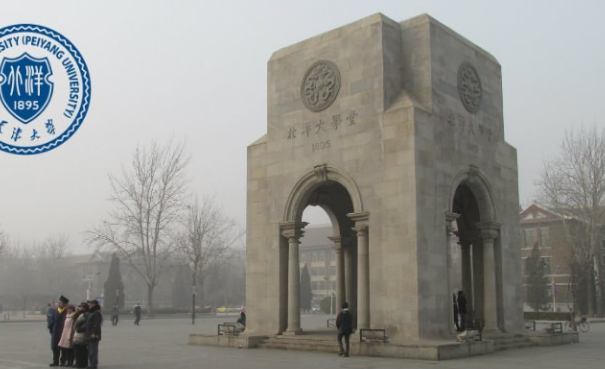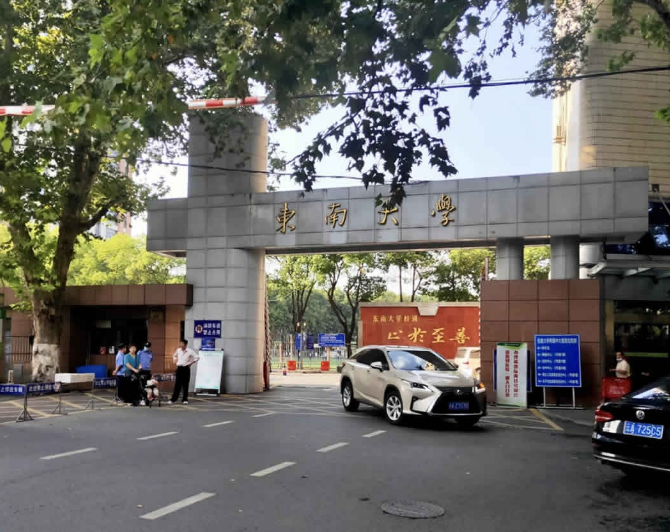Yes, SPM students can apply to Chinese universities, which recognize SPM qualifications for admission.
Table of Contents
Language Requirements
If Malaysian students are interested in applying to Chinese universities, at first, they need to confirm language requirements. Most universities offering Mandarin-taught programs need foreign students to prove their competence and the narrowed focus of knowledge. In China, language qualifications are usually approved by HSK, a standardized Chinese proficiency test administered by the Chinese government. Depending on the complexity of the subject matter and academic program’s difficulty, universities ask applicants to present various HSK levels, which are divided into six grades.
Considering the challenge of Chinese learning process, foreign students applying to the English-taught programs may need to provide the evidence of their ability to understand and in proper manner use that language. ESL students must pass some of the international English qualifications, such as IELTS or TOEFL. IELTS is an English language test rated from 1 to 9. Therefore, the minimum score being equal to 6.0 constitutes half of the largest test’s volume. TOEFL score requirements are quite similar. All together, HSK Level 3-4 and IELTS 6.0-7.0, or TOEFL iBT 80 would be quite enough. Some English-Mandarin universities may require two language proofs. Let me give an illustration. As Tsinghua University in Beijing offers high standards for Chinese competence in Mandarin-Taught Engineering Program, a student needs to have HSK Level 5. Shanghai Jiao Tong University’s English Business Program’s requires an IELTS score being equal to 6.5.

Application Process
The first step for the SPM students from Malaysia who want to apply to a Chinese university is to choose their preferred institution and program. Besides that, there are some specifics of applying such as the timeline and documents required. In general, the application timeline for different universities is always from October to March of the next year, but there may be deviations for a specific program or university. For this reason, the necessary information should be checked on the website of the program in which the admission is expected.
The first stage of the application process is filing out an online application form on the official page of the program. It is necessary to provide the university with the information on the personal data, education, and requisitioned major in some cases. The second is providing some documents by uploading them on the website. Those documents that are required for this process in general are a copy of the SPM certificate, graduation certificate, complete high school transcript, a copy of the passport, and in some language program cases – a copy of the IELTS/TOEFL certificate or HSK certificate for the Mandarin program. One of the most essential documents that have to be submitted is a letter of recommendation. According to the Peking university requirements, at least two letters from the academic referee are needed. It helps to evaluate the student’s potential for success in the competitive academic world. Moreover, after submitting all the required documents, the examiners may decide to conduct an interview. Usually, those interviews are held online and help to evaluate the candidate’s motivation and language skills.
The final stage of this process after submitting the documents and passing the possible interview is waiting for about one to two months until one receives the response from the university. She or he will receive an admission with the JW202 form attached, which is needed for getting a student visa. The approximate cost of the university application is 400-800 yuan.
Recognition of SPM
Universities in China accept SPM or the certificate of Malaysian Education for admission into undergraduate courses. This policy captures the shift in China’s stance on international students as more universities seek to diversify their student population, and establish academic relations with countries like Malaysia. As a student with SPM certificate makes an application to any university in China, their detailed SPM results, as well as supplementing education credentials, are submitted alongside the application. For example, a student making an application for an undergraduate course in engineering technology at Zhejiang University will be required to provide SPM results that establish a strong understanding of mathematics and physical sciences, specifically physics and chemistry. Here, a university is likely to look for SPM results above 85% for a course such as engineering programs that are demanding in physics and chemistry. As part of supplementing their degree qualifications, universities in China may also want to establish the applicant’s current studies by requiring them to provide a predicted score in their current studies or submit results for foundation or pre-university studies in Malaysia.
Foundation studies
A student may also be required to take up identical classes as first-year undergraduate students in foundation or pre-engineering studies for one year if their education background is considered weak for a direct university entry. These foundation studies develop international students’ foundational scientific knowledge and equip them with essential technical skills for their undergraduate course. It also prepares the students culturally, linguistically, and socially while familiarizing students with the institution they want to join. However, competitive courses might tend to encourage students to submit curriculum vitaes with their applications, which structure to prioritize extra qualifications like A-levels and the international Baccalauretes that are renowned for their challenging content.

Scholarships
There are many scholarships offered by Chinese universities or the Chinese government in order to provide financial aid for studying in China. Those scholarships usually cover the whole tuition fee, on-campus accommodation, monthly stipend, and sometimes even medical insurance, which makes studying in China significantly cheaper, among other expenses. Most of them can be applied by SPM students graduating from Malaysia.
One of the most common scholarships is the Chinese Government Scholarship, which is available for international students in China, both undergoing undergraduate and postgraduate studies. In general, the scholarship provides fee waiver for the whole duration of the chosen course, on-campus accommodation, and monthly stipend of 2,500 RMB for undergraduates. Its terms also include comprehensive medical insurance. It is required to apply when student is still in Malaysia, either through the China Scholarship Council or through the Chinese Embassy in their country.
A particularly good scholarship is the Confucius Institute Scholarship, although it is available for students worldwide. It supports students interested in Chinese language and studies of Chinese culture and can be a good option for students from Malaysia that already have highly developed Chinese skills and want to further expand their knowledge and start undergraduate or postgraduate studies in Chinese history, literature or philosophy. The terms include tuition waiver, on-campus accommodation, and monthly stipend of 2,500 RMB as in the case of Chinese Government Scholarship.
University itself often offers scholarships for international students. For example, Tsinghua University Scholarship for International Students may cover from 100% to at least 50% of tuition fee and offer monthly stipend, which in Tsinghua’s scholarship case is 3,000 RMB, which is very competitive with state payments. In some cases such scholarship might only cover a fraction of the tuition fee, but still provide monthly stipend in order to pay for on-campus accommodation. Specific terms depend on the university, and it should be checked by visiting Scholarships or International Office websites of your choice to study university in greater detail and well ahead of the application deadline. Application should be well-prepared and target not only academic transcript but also letters of recommendation from previous teachers as well as a personal statement. This statement should explain academic achievements, extracurricular activities, and, most importantly, personal motivation and future goals, preparing the applicant for the objectives of the scholarship.
Visa Requirements
Hi, I’m a Malaysian student obtaining my SPM results next year, and I consider entering a university in China. What information can you give me if I need to apply for a student visa in China?
If you stay for more than 180 days to study in a China university, you need to have X1 visa. If your course lasts for less than 180 days, it is better for you to apply for the X2 visa. Before applying for a visa, you need to get a Letter of Admission and an JW202 form which is given by the Ministry of Education to all international students. That means that you have enrolled for a study in a China university and obtained a place there. Afterward, you have to apply for the visa at the closest China embassy or consulate. The list of other documents needs to take for the visa application usually includes JW202 form and Letter of Admission, your passport which should be valid for at least 6 more months and have two blank pages, visa application form, and a few passport-sized present-day photos. According to the following embassy’s guidelines, you may also have to show that you have finance means to cover your stay in China and a report on a health check.
The term of processing of visa may often differ but, on average, it takes about 4 weeks. The cost of applying for the X1 visa may be from 30 USD to 140 USD, depending on your nationality and selected terms of expedition. It is advised to apply for the visa a lot earlier before the departure in order not to face any delays in the processing which may cause the rescheduling of your studies. When you are in China with your X1 visa, you have, within 30 days from the entrance, to also apply for the Temporary Residence Permit, the validity of which usually follows the span of the study course.

